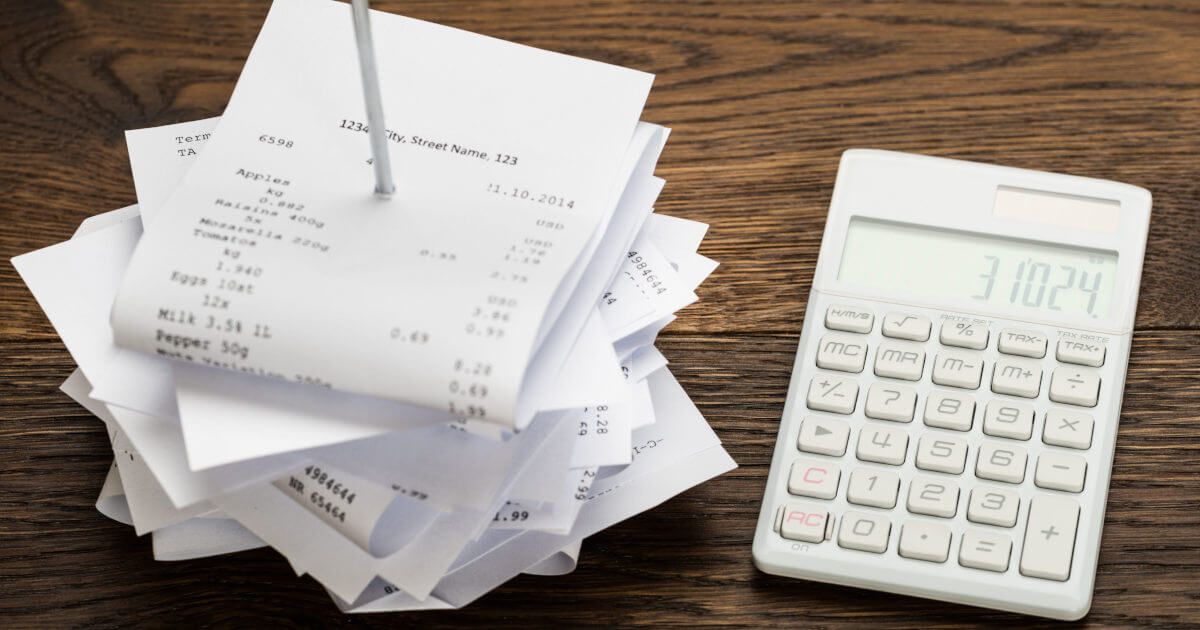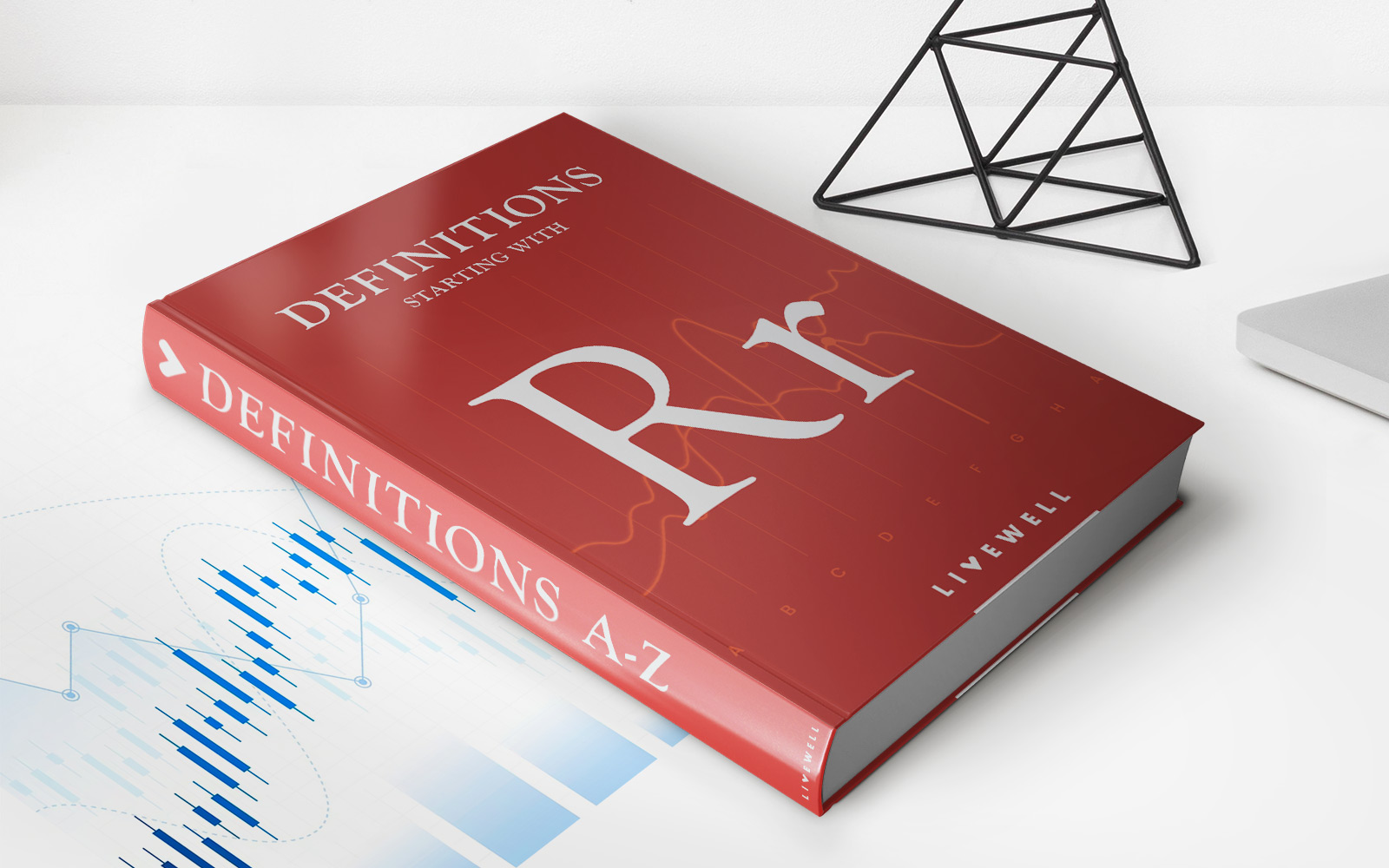

Finance
How To Get A Car Lease With Bad Credit
Published: January 7, 2024
Learn how to finance a car lease even with bad credit. Get helpful tips and strategies to secure a car lease that fits your budget and financial situation.
(Many of the links in this article redirect to a specific reviewed product. Your purchase of these products through affiliate links helps to generate commission for LiveWell, at no extra cost. Learn more)
Table of Contents
- Introduction
- Understanding Car Leasing
- The Impact of Bad Credit on Car Leasing
- Steps to Get a Car Lease with Bad Credit
- Researching Lenders Specializing in Bad Credit Car Leases
- Gathering the Necessary Documents
- Exploring Lease Options and Negotiating Terms
- Improving Your Chances of Approval
- Preparing for the Lease Agreement Signing
- Conclusion
Introduction
Obtaining a car lease can be a great option for individuals who want to enjoy the benefits of a new vehicle without the long-term commitment of financing. However, for those with bad credit, securing a car lease may seem like an intimidating endeavor. The good news is that it is still possible to lease a car even with a less-than-perfect credit score.
Car leasing involves renting a vehicle for a specified period, typically two to three years, with a predetermined mileage limit. During this time, you make monthly payments based on the difference between the car’s residual value and its initial value. At the end of the lease term, you return the car to the dealer.
Having bad credit can make the leasing process more challenging, as it indicates a higher risk for the lender. However, with some perseverance and a strategic approach, you can improve your chances of getting approved for a car lease.
In this article, we will explore the steps you can take to secure a car lease with bad credit. We will discuss researching lenders specializing in bad credit car leases, gathering the necessary documents, exploring lease options and negotiating terms, improving your chances of approval, and preparing for the lease agreement signing.
By following these steps and being proactive in your approach, you can overcome the obstacles associated with bad credit and drive off in the car of your dreams.
Understanding Car Leasing
Before diving into the process of getting a car lease with bad credit, it’s important to have a clear understanding of how car leasing works. Car leasing is essentially a long-term rental agreement where you pay to use a vehicle for a predetermined period of time.
When you lease a car, you are essentially paying for the depreciation of the vehicle rather than its total value. This makes leasing an attractive option for those who prefer to drive a new car every few years without the commitment of ownership.
Car leases typically have specific terms and conditions, including a mileage limit and restrictions on modifications and excessive wear and tear. It’s important to carefully review these terms and ensure that they align with your needs and driving habits before signing a lease agreement.
One of the key factors to consider when leasing a car is the residual value, which is the estimated value of the vehicle at the end of the lease term. A higher residual value can lead to lower monthly payments, making the lease more affordable. It’s also worth noting that car leases often require a down payment, which can vary depending on the terms of the lease agreement and your creditworthiness.
Another important aspect of understanding car leasing is the concept of the money factor or lease rate. This rate determines the finance charges included in your monthly payments. A lower money factor indicates a better lease rate and can help reduce your overall expenses.
It’s crucial to carefully evaluate your personal and financial circumstances before deciding whether car leasing is the right option for you. Consider factors such as your budget, lifestyle, and future plans. While leasing can offer flexibility and the chance to drive a new car, it may not be the most cost-effective choice for everyone.
Now that you have a better understanding of car leasing, let’s move on to exploring how bad credit can impact your ability to secure a car lease and what steps you can take to overcome this hurdle.
The Impact of Bad Credit on Car Leasing
Bad credit can have a significant impact on your ability to lease a car. When you have a poor credit score, it indicates to lenders that you may have a history of late payments, defaults, or other financial difficulties. As a result, leasing companies may perceive you as a higher risk borrower, making it more challenging to secure a car lease.
One of the main ways bad credit can affect your car leasing options is through higher interest rates. Lenders may view individuals with bad credit as more likely to default on their lease payments, and to mitigate the risk, they may impose a higher interest rate. This means you could end up paying more in monthly payments compared to someone with good credit.
In addition to higher interest rates, leasing companies may also require a larger down payment for individuals with bad credit. This serves as a form of security for the lender and can help offset the perceived risk associated with your credit history. A larger down payment can make leasing a car more expensive upfront and potentially limit your options due to budget constraints.
Furthermore, having bad credit may restrict the types of lease agreements available to you. Some leasing companies may have stricter requirements or only offer leases with less favorable terms to individuals with bad credit. This could result in limited vehicle choices or being required to lease a vehicle with higher mileage restrictions or lower-end models.
It’s important to note that bad credit does not necessarily mean you will be denied a car lease altogether. There are lenders and dealerships that specialize in working with individuals who have bad credit. However, it’s crucial to be prepared for the financial implications and potentially limited options that may arise as a result.
Now that you understand the impact of bad credit on car leasing, let’s explore the steps you can take to improve your chances of getting approved for a car lease even with less-than-perfect credit.
Steps to Get a Car Lease with Bad Credit
While having bad credit may present some challenges when trying to secure a car lease, there are several steps you can take to increase your chances of approval. By following these steps and being proactive in your approach, you can improve your creditworthiness in the eyes of potential lenders and increase your likelihood of getting a car lease with bad credit.
1. Researching Lenders Specializing in Bad Credit Car Leases: Start by researching lenders and dealerships that specialize in working with individuals who have bad credit. Look for those who have experience helping customers with poor credit scores secure car leases. These lenders understand the unique circumstances of individuals with bad credit and may have more flexible approval criteria.
2. Gathering the Necessary Documents: Before approaching a lender or dealership, gather all the necessary documents that will help support your lease application. This may include proof of income, such as recent pay stubs or tax returns, proof of residence, such as utility bills or a lease agreement, and identification documents like a driver’s license and social security number.
3. Exploring Lease Options and Negotiating Terms: When looking for car lease options, be open to various makes and models. Expand your search beyond brand new cars as used vehicles tend to have more flexible requirements. Consider the lease terms, monthly payments, mileage limits, and any additional fees associated with the lease. Negotiate terms that work within your budget and ensure you understand the details of the lease agreement.
4. Improving Your Creditworthiness: While it may not be an immediate solution, taking steps to improve your creditworthiness can have long-term benefits. Make all your payments on time, reduce your outstanding debt, and dispute any errors on your credit report. Over time, these actions will help improve your credit score and increase your chances of securing more favorable leasing terms.
5. Preparing for the Lease Agreement Signing: Once you have found a lender or dealership willing to work with you, thoroughly review the lease agreement before signing. Pay close attention to the terms, fees, and any additional costs. If possible, have a trusted advisor or attorney review the agreement with you to ensure you understand the terms and obligations.
By following these steps and being proactive in your approach, you can overcome the challenges associated with bad credit and increase your chances of getting approved for a car lease. Remember, persistence and patience are key, and with the right preparation, you can soon be driving off in the car you desire.
Researching Lenders Specializing in Bad Credit Car Leases
Researching lenders who specialize in bad credit car leases is crucial when you have a less-than-perfect credit score. These lenders understand the challenges that individuals with bad credit face and are more willing to work with you to secure a car lease. Here are some key steps to help you in your research:
1. Online Research: Start your search by researching online. Look for lenders or dealerships that explicitly mention their expertise in providing car leases to individuals with bad credit. Read customer reviews and check their ratings to get an idea of their reputation. Make a shortlist of potential lenders that stand out to you.
2. Check Special Financing Programs: Many lenders offer special financing programs specifically designed for individuals with bad credit. These programs may have more flexible requirements and interest rates tailored to your credit situation. Research these programs to see if any lenders offer them in your area.
3. Seek Recommendations: Reach out to friends, family, or colleagues who may have gone through a similar situation. Ask if they have any recommendations for lenders specializing in bad credit car leases. Personal recommendations can provide valuable insights and help you find trustworthy lenders.
4. Visit Dealerships: Once you have identified potential lenders, visit their dealerships if possible. Speak with their finance department and express your interest in a car lease despite your bad credit. Ask about their experience working with customers with bad credit and inquire about any specific programs they offer for individuals in similar situations.
5. Compare Terms and Rates: When researching lenders, it’s essential to compare their lease terms, interest rates, and fees. Pay attention to factors such as the down payment requirement, lease duration, mileage allowance, and early termination penalties. By comparing multiple lenders, you can find the one that offers the most favorable terms for your situation.
6. Consult with Credit Unions and Local Banks: Don’t forget to explore credit unions and local banks as potential lenders for your bad credit car lease. These institutions often have more personalized and flexible lending options compared to larger financial institutions. They may be more willing to work with individuals with bad credit and provide better terms and rates.
Remember, researching lenders specializing in bad credit car leases requires time and effort. Take your time to find reputable lenders who have experience in this area and who can provide you with the best possible lease terms despite your credit situation. By being diligent in your research, you can increase your chances of finding a lender who will work with you to secure a car lease.
Gathering the Necessary Documents
When applying for a car lease with bad credit, it’s important to gather all the necessary documents to support your application. As individuals with bad credit are considered higher risk borrowers, providing thorough documentation can help lenders better understand your financial situation and increase your chances of getting approved. Here are the key documents you should collect:
1. Proof of Identification: You’ll need to provide a valid identification document, such as a driver’s license or passport, to verify your identity.
2. Proof of Income: Lenders will want to see proof of your income to assess your ability to make monthly lease payments. Gather recent pay stubs, bank statements, or tax returns that show a stable income source.
3. Employment Verification: Lenders may ask for employment verification to confirm your job stability. This can be done by providing a letter from your employer or recent pay stubs that indicate your employment status.
4. Proof of Residence: Provide documents that prove your current residential address, such as utility bills, a lease agreement, or a bank statement. This helps lenders verify your stability and ability to maintain regular payments.
5. Bank Statements: Include recent bank statements to showcase your financial standing and stability. This can also help lenders assess your ability to manage your finances responsibly.
6. Proof of Insurance: Most leasing companies require lessees to have auto insurance coverage. Make sure to have an active and valid insurance policy that meets the minimum requirements set by the leasing company.
7. Personal References: Some lenders may require personal references to vouch for your character and reliability. Provide contact information for individuals who can speak positively about you and confirm your trustworthiness.
Remember, different lenders may have specific document requirements, so it’s essential to check with the lender or dealership priorly. Prepare copies of these documents and keep both the originals and copies on hand when visiting lenders or dealerships. Having all the necessary documents readily available demonstrates your preparedness and commitment to the leasing process.
By gathering and organizing these documents in advance, you can streamline the application process and present a strong case to lenders, increasing your chances of getting approved for a car lease despite your bad credit.
Exploring Lease Options and Negotiating Terms
When seeking a car lease with bad credit, it’s crucial to explore various lease options and negotiate terms that suit your financial situation. Here are some key steps to consider:
1. Research Available Vehicles: Begin by researching the different makes and models that fit your budget and needs. Consider factors such as reliability, fuel efficiency, and maintenance costs. Look for vehicles that typically have more flexible leasing options or are known for accommodating individuals with bad credit.
2. Compare Lease Deals: Explore lease deals from multiple dealerships or lenders. Look for promotional offers or special financing options available for individuals with bad credit. Pay attention to factors such as the lease duration, mileage allowance, and any additional fees. Compare the total cost of the lease, including the down payment and monthly payments, to find the most affordable option.
3. Negotiate Lease Terms: Once you identify a suitable vehicle and leasing option, don’t be afraid to negotiate the terms. Even with bad credit, there may be room for adjustments in the interest rate, down payment amount, or other lease terms. Be prepared to provide explanations for your bad credit and emphasize your commitment to making regular lease payments.
4. Consider a Co-Signer: If your bad credit makes it difficult to secure a car lease on your own, you may consider getting a co-signer. A co-signer with a good credit history can increase your chances of approval and potentially help you secure more favorable lease terms. However, it’s important to discuss the responsibilities and implications with your co-signer before proceeding.
5. Evaluate Lease Mileage Allowance: Pay close attention to the mileage limit stated in the lease agreement. Exceeding the mileage limit can result in additional fees at the end of the lease term. If you have a longer commute or know that you will be driving more than the average mileage allowance, negotiate for a higher mileage limit upfront to avoid excess charges later on.
6. Read and Understand the Lease Agreement: Before signing the lease agreement, thoroughly read and understand all the terms and conditions. Pay attention to any early termination fees, maintenance requirements, or penalties for excessive wear and tear. Clarify any uncertainties with the dealership or lender to ensure you fully comprehend your rights and obligations under the lease agreement.
While negotiating lease terms can be more challenging with bad credit, it’s not impossible. By being proactive, doing your research, and advocating for yourself, you can increase your chances of finding a lease with terms that are manageable and favorable for your financial situation.
Remember to weigh the costs and benefits of each lease option and carefully consider how the terms align with your budget and lifestyle. By taking these steps, you can secure a car lease that meets your needs and helps you rebuild your credit over time.
Improving Your Chances of Approval
While bad credit can make it more challenging to get approved for a car lease, there are steps you can take to improve your chances of securing a lease. By focusing on rebuilding your credit and demonstrating your ability to manage your finances responsibly, you can increase your creditworthiness in the eyes of lenders. Here’s how:
1. Improve Your Credit Score: Start by reviewing your credit report and addressing any errors or inaccuracies. Pay off outstanding debts and make all future payments on time. Over time, these positive actions will help improve your credit score, making you a more attractive candidate for lenders.
2. Provide a Larger Down Payment: Increasing your down payment can help reduce the lender’s perceived risk. By putting down a larger sum upfront, you demonstrate commitment and show that you have the financial means to handle the lease payments.
3. Consider a Shorter Lease Term: Opting for a shorter lease term, such as 24 months instead of 36, can increase your chances of approval. Shorter terms are generally less risky for lenders and may put them at ease when considering individuals with bad credit.
4. Look for Dealerships with In-House Financing: Some dealerships have in-house financing departments that may have more flexibility in working with customers with bad credit. They may be more willing to assess your overall financial situation and consider other factors beyond just your credit score.
5. Seek a Co-Signer: If possible, find a co-signer with good credit who is willing to vouch for your ability to make lease payments. A co-signer with a stronger credit profile can help to offset the risk associated with your bad credit and improve your chances of approval.
6. Provide Proof of Stability: Lenders appreciate stability and reliability when it comes to approving lease applications. Gather documents that demonstrate your stable employment history, consistent income, and residency stability. This can include recent pay stubs, employment verification letters, and utility bills.
7. Communicate with Lenders: Don’t hesitate to communicate openly with potential lenders. Be honest about your credit situation and provide explanations for any past financial difficulties. Showing that you are proactive and committed to improving your creditworthiness can make a positive impression and increase your chances of approval.
Remember, rebuilding your credit takes time, and it’s essential to set realistic expectations. While taking these steps can enhance your chances of being approved for a car lease with bad credit, it’s important to be financially responsible moving forward and continue your efforts to improve your credit score.
By demonstrating your commitment to positive financial habits and taking advantage of available strategies, you can enhance your creditworthiness and improve your chances of securing a car lease despite having bad credit.
Preparing for the Lease Agreement Signing
As you near the lease agreement signing, it’s crucial to take the necessary steps to ensure you are fully prepared for this important milestone. By being well-prepared, you can avoid any surprises and make the lease agreement signing process smooth and hassle-free. Here’s what you should do:
1. Review the Lease Agreement: Carefully review the lease agreement in its entirety before the signing. Pay attention to all the terms, conditions, and obligations outlined in the document. Understand the lease duration, monthly payment amount, mileage limit, and any additional fees or charges that may apply. If you have any questions or concerns, don’t hesitate to seek clarification from the leasing company or dealership.
2. Understand Your Maintenance Responsibilities: Familiarize yourself with the maintenance responsibilities mentioned in the lease agreement. Note any specific requirements for routine maintenance and repairs, such as regular oil changes or tire rotations. Understanding your maintenance obligations will help you keep the leased vehicle in good condition and avoid any penalties for neglecting maintenance.
3. Arrange for Auto Insurance: Remember to arrange auto insurance coverage that meets the minimum requirements set by the leasing company. Contact insurance providers to obtain a quote and ensure proof of insurance is ready to be presented at the signing. This is a critical step as you won’t be able to take possession of the vehicle without valid insurance coverage.
4. Prepare the Required Payment: Calculate the upfront payment required for the lease agreement, including any down payment, security deposit, taxes, and fees. Ensure you have the necessary funds readily available in the form of a cashier’s check or a certified payment method. Double-check with the leasing company or dealership on the preferred payment method to avoid any last-minute issues.
5. Inspect the Vehicle: Prior to the signing, thoroughly inspect the leased vehicle for any damages, both inside and out. Note and document any existing scratches, dents, or mechanical issues. Bring these to the attention of the leasing company or dealership and ensure they are documented in the lease agreement to avoid disputes regarding the vehicle’s condition when you return it at the end of the lease term.
6. Bring the Necessary Documents: Gather all the required documents as specified by the leasing company or dealership, such as your identification, proof of insurance, and any additional documents they may have requested prior to the signing. Ensure you have both the original copies and any necessary copies for their records.
7. Allow Sufficient Time: Allocate enough time for the lease agreement signing process. It’s important not to rush through the paperwork to ensure you understand all the terms and conditions. If necessary, schedule an appointment to avoid potential delays or conflicts with other customers.
By adequately preparing for the lease agreement signing, you can enter into the leasing process with confidence and clarity. Taking the time to review the agreement, understand your responsibilities, and gather the necessary documents will help ensure a smooth and successful lease arrangement.
Conclusion
Securing a car lease with bad credit may seem challenging, but with the right approach, it is possible. By following the steps outlined in this article, you can increase your chances of getting approved for a car lease and drive the vehicle you desire.
Start by researching lenders specializing in bad credit car leases. Look for reputable lenders who have experience working with individuals in similar credit situations. Gather all the necessary documents, including proof of income, residence, identification, and any other requested information to support your lease application.
Explore various lease options and negotiate terms that fit your budget and needs. Consider shorter lease terms, larger down payments, and potential co-signers to improve your chances of approval. Focus on improving your creditworthiness by paying all your bills on time, reducing outstanding debts, and addressing any errors in your credit report.
When signing the lease agreement, carefully review all terms and conditions, and understand your maintenance responsibilities and insurance requirements. Be prepared with the necessary funds for upfront payments, and thoroughly inspect the leased vehicle before taking possession.
Remember, rebuilding credit takes time and effort. Securing a car lease with bad credit is just one step towards improving your financial situation. By making timely monthly payments and being responsible with your lease agreement, you can further enhance your creditworthiness for future financial endeavors.
Ultimately, the key to success in getting a car lease with bad credit is persistence, preparation, and understanding. Take the necessary steps, gather the required documents, and work with lenders who are willing to work with individuals in your credit situation.
With determination and a strategic approach, you can overcome the challenges of bad credit and drive off in the car you deserve. Use this article as your guide, and soon you’ll be enjoying the benefits of a car lease while taking steps towards improving your credit standing.














